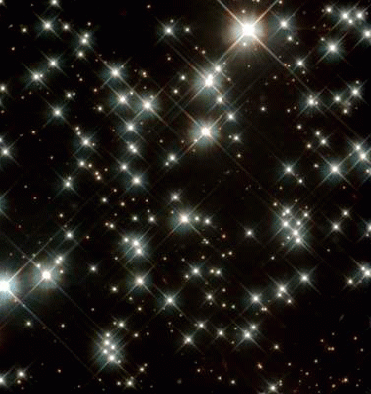
WASHINGTON (PTI): Researchers claim to have discovered a new type of chemical bonding in distant Universe which may help explain how stars form, evolve, and eventually die.
The new molecular-level interaction may redefine how science views chemical compound formation.
"We discovered a new type of chemical bonding. It's a brand new type of chemical bonding, not previously known to science," said Mark Hoffmann, from University of North Dakota.
It also answers questions about what goes on in places like white dwarfs, the super dense cores of stars nearing the end of their life cycles, researchers believe.
"Our discovery addresses one of the mysteries in astrophysics about the spectrum of white dwarf stars," Hoffmann said.
"White dwarfs have an unusual spectrum that has been thought to result from polymerised hydrogen and helium which, of course, do not occur on Earth," Hoffmann said.
"It's possible out there because the magnetic fields on white dwarfs are several orders of magnitude larger than anything that can be generated on Earth," Hoffmann added.
The closest white dwarf, Sirius B, is a faint twin to the brightest star in the night sky, Sirius A. It's about the same size as our Sun, but much denser; its average density is 1.7 metric tons per cubic centimetre, or about 3,000 pounds compressed into a box the size of a sugar cube.
Hoffmann and his team described a magnetically induced bonding process between materials.
"There was speculation that this phenomenon should exist, but no one had the proof, and no one - until the team I'm on described the process - had the theoretical structure and the computational tools to address this," he said.
On Earth, even the boldest military experiments generate a peak of maybe 1,000 Tesla - a measure of magnetic force (refrigerator magnets generate a thousandth of one Tesla).
But on Sirius B, for example, magnetic fields are on the order of 200,000 to 400,000 Tesla, enough to challenge the electronic interactions that dominate the chemistry and material science we know on Earth.
Such vast magnetic fields directly alter the way atoms come together, and can alter the chemical reality we know on Earth.
"What we had before we discovered this was basically a paper-and-pencil model of what goes on in the universe.
"Compared to what's out there in places such as white dwarf stars, the magnetic fields we can generate here - even with the strongest magnets - are pathetic," Hoffmann said.
"We computationally modeled the behaviour that we theorised, based on universally applicable physical principles," Hoffmann said in a statement.
The discovery was published in the journal Science.
 Previous Article
Previous Article Next Article
Next Article












The Indian Air Force, in its flight trials evaluation report submitted before the Defence Ministry l..
view articleAn insight into the Medium Multi-Role Combat Aircraft competition...
view articleSky enthusiasts can now spot the International Space Station (ISS) commanded by Indian-American astr..
view article